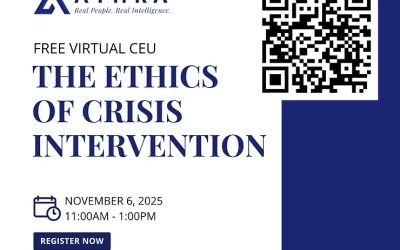Competency restoration is a crucial process within the legal and mental health systems, aimed at ensuring that individuals facing criminal charges are mentally capable of understanding the proceedings and participating in their defense. This article delves into the concept of competency restoration, its importance, the process involved, and the challenges faced in implementing effective programs.
What is Competency Restoration?
Competency restoration refers to the process of rehabilitating a defendant’s mental state to meet the legal standard of competency to stand trial. In the United States, the legal system requires that defendants must be able to understand the nature and purpose of the court proceedings and be able to assist their attorney in their defense. If a defendant is found incompetent to stand trial, they are typically ordered to undergo competency restoration.
As of February 2023, “More than 2500 people are currently on the Texas’ forensic waitlist,” according to The Judicial Commission on Mental Health. The numbers continue to increase of people who are found incompetent to stand trial.
Importance of Competency Restoration
The significance of competency restoration lies in its role in upholding the fairness and integrity of the legal system. Ensuring that defendants are mentally fit to participate in their trials protects their legal rights and promotes justice. Key reasons for its importance include:
- Legal Rights Protection: Competency restoration safeguards the defendant’s right to a fair trial by ensuring they can understand the charges against them and participate in their defense.
- Ethical Considerations: It is ethically imperative to treat defendants humanely, ensuring they are mentally capable of undergoing trial.
- Judicial Efficiency: Restoring competency helps in proceeding with trials in a timely manner, reducing prolonged detentions and backlogs in the judicial system.
The Competency Restoration Process
The competency restoration process involves several steps, including assessment, treatment, and evaluation:
- Assessment: When a defendant’s competency is in question, a court-ordered psychological and/or psychiatric evaluation is conducted by a mental health professional. The evaluation determines if the defendant has the capacity to understand the proceedings and assist in their defense.
- Treatment Plan: If found incompetent, the defendant is typically referred to a competency restoration program, which may take place in a variety of settings, including hospitals, outpatient facilities, or specialized competency restoration centers.
- Restoration Activities: The treatment involves a combination of psychiatric care, medication management, and educational sessions about the legal system. Therapy focuses on stabilizing the defendant’s mental health condition while educational sessions aim to improve their understanding of court procedures, roles of courtroom personnel, and legal concepts.
- Reevaluation: After a period of treatment, the defendant is reevaluated to determine if they have been restored to competency. If so, they return to court to proceed with their trial. If not, further treatment may be required, or alternative legal dispositions may be considered.
Challenges in Competency Restoration
Despite its importance, competency restoration faces several challenges:
- Resource Limitations: Many jurisdictions lack sufficient resources, including specialized facilities and trained personnel, to effectively manage competency restoration programs.
- Treatment Resistance: Some defendants may resist treatment or have conditions that are particularly challenging to treat, making restoration difficult.
- Legal and Ethical Dilemmas: Balancing the need for timely restoration with the defendant’s right to appropriate mental health care poses legal and ethical challenges. Prolonged detention for restoration purposes can raise human rights concerns.
- Diverse Needs: Defendants have varying levels of education, cognitive functioning, and understanding of the legal system, requiring individualized approaches that can be complex to implement.
Improving Competency Restoration
Addressing the challenges in competency restoration requires a multifaceted approach:
- Enhanced Training: Providing specialized training for mental health professionals and legal personnel involved in competency restoration can improve the effectiveness of programs.
- Increased Funding: Allocating more resources to develop and sustain comprehensive competency restoration programs can help address resource limitations.
- Integrated Services: Developing integrated services that combine mental health treatment with legal education can create more cohesive and effective restoration processes.
- Policy Reforms: Implementing policy reforms that prioritize humane and timely restoration procedures can help balance legal and ethical considerations.
Conclusion
Competency restoration is a vital process at the intersection of the legal and mental health systems, ensuring that defendants are mentally capable of participating in their trials. Despite facing significant challenges, ongoing efforts to improve competency restoration programs are essential for promoting justice, protecting legal rights, and ensuring humane treatment. Through enhanced training, increased funding, integrated services, and policy reforms, the effectiveness and fairness of competency restoration can be significantly improved.
Athra Systems, a Veteran owned company, provides competency restoration and other forensic psychiatry services through our teamed of trained providers and experts. Learn more at www.AthraSystems.com.











